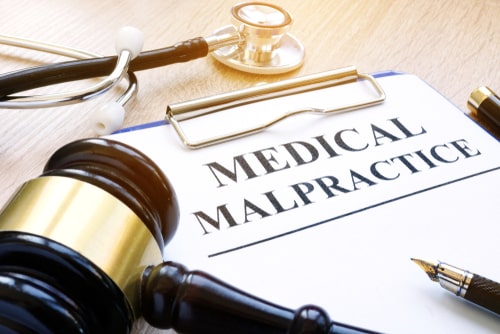When a person becomes ill, they trust that their medical provider will diagnose the condition they are suffering from and provide the appropriate treatments. But if that provider misdiagnoses that condition and fails to provide the proper treatments, it can have significant consequences for the patient’s health. A misdiagnosis occurs when a doctor or other healthcare professional fails to correctly identify or diagnose a medical condition, leading to delayed or inappropriate treatment. Under North Carolina law, a patient who has suffered injury or illness because of a misdiagnosis may be able to seek financial compensation for their harm through a medical malpractice lawsuit.
Although every case is unique, the following are some of the factors that can determine whether a patient can pursue damages for their losses. For more detailed information about your situation, contact Shapiro, Washburn & Sharp to speak with one of our dedicated North Carolina medical malpractice attorneys.
Negligence
In order for a claim to be viable, it is crucial to establish that the medical professional’s actions or inactions amounted to negligence. Negligence occurs when a healthcare provider fails to meet the standard of care expected in their field and that failure leads to harm. Proving negligence typically involves demonstrating that another reasonably skilled and competent healthcare professional, under similar circumstances, would not have made the same diagnostic error.
Causation
There must be a causal connection between the misdiagnosis and the harm suffered. This means showing that the misdiagnosis directly led to the patient’s worsened condition, delayed treatment, or unnecessary medical interventions. If the misdiagnosis did not cause any harm or if the harm was unrelated, it may be difficult to pursue a successful claim.
Damages
Patients seeking compensation must demonstrate the damages they have suffered as a result of the misdiagnosis. These damages can include physical pain, emotional distress, medical expenses, loss of income, loss of earning capacity, and the cost of future care or treatment. It is essential to document and provide evidence of the actual harm suffered to support the claim for compensation. Your malpractice attorney will explain what types of documentation and evidence you will need.
Expert Opinion
Expert medical opinions often play an important role in misdiagnosis cases. In order to establish negligence and causation, it is often necessary to obtain testimony from medical professionals in the same field as the healthcare provider who made the misdiagnosis. These witnesses can evaluate the patient’s medical records, review the facts of the case, and provide their professional opinion on whether negligence occurred and if it led to harm.
Statute of Limitations
It is important to be aware of the statute of limitations for medical malpractice claims. The statute of limitations sets a time limit within which a claim must be filed. In North Carolina, the statute of limitations is three years. If the claim is not filed within that three-year period, you may be barred from seeking compensation. This is why you should contact a malpractice attorney as soon as you are aware of the problem.
Contact Our Outer Banks Personal Injury Firm for Legal Assistance
Medical malpractice cases can be complex, requiring specialized legal knowledge and expertise. Consulting with an experienced North Carolina medical malpractice attorney is critical in determining the viability of a claim and navigating the legal process. An attorney can assess the strength of the case, gather the necessary evidence, consult with medical experts, and advocate for the patient’s rights and interests.
If you or a loved one has been injured due to a medical professional’s negligence, contact Shapiro, Washburn & Sharp and schedule a free case evaluation with one of our skilled OBX malpractice attorneys.
